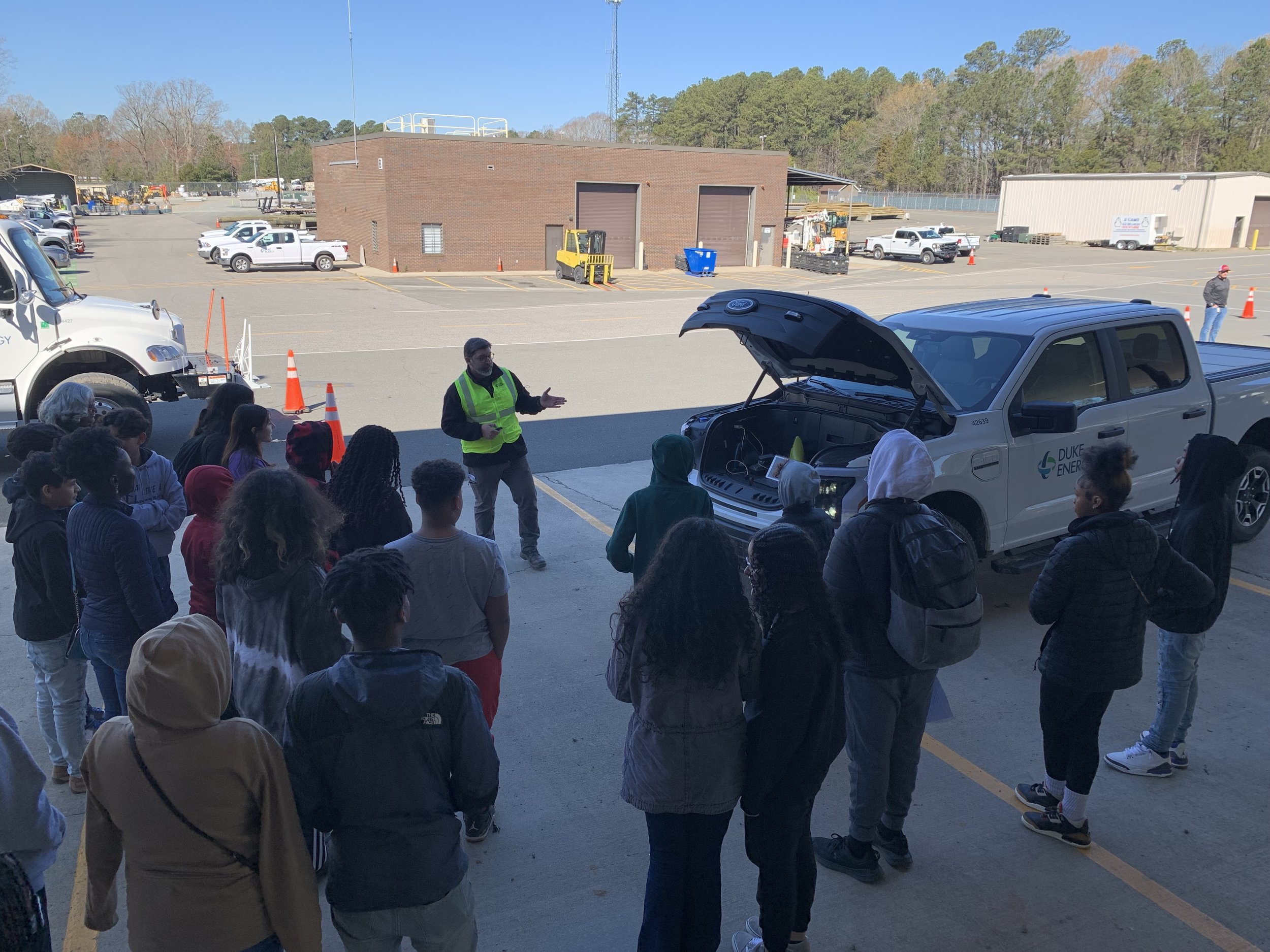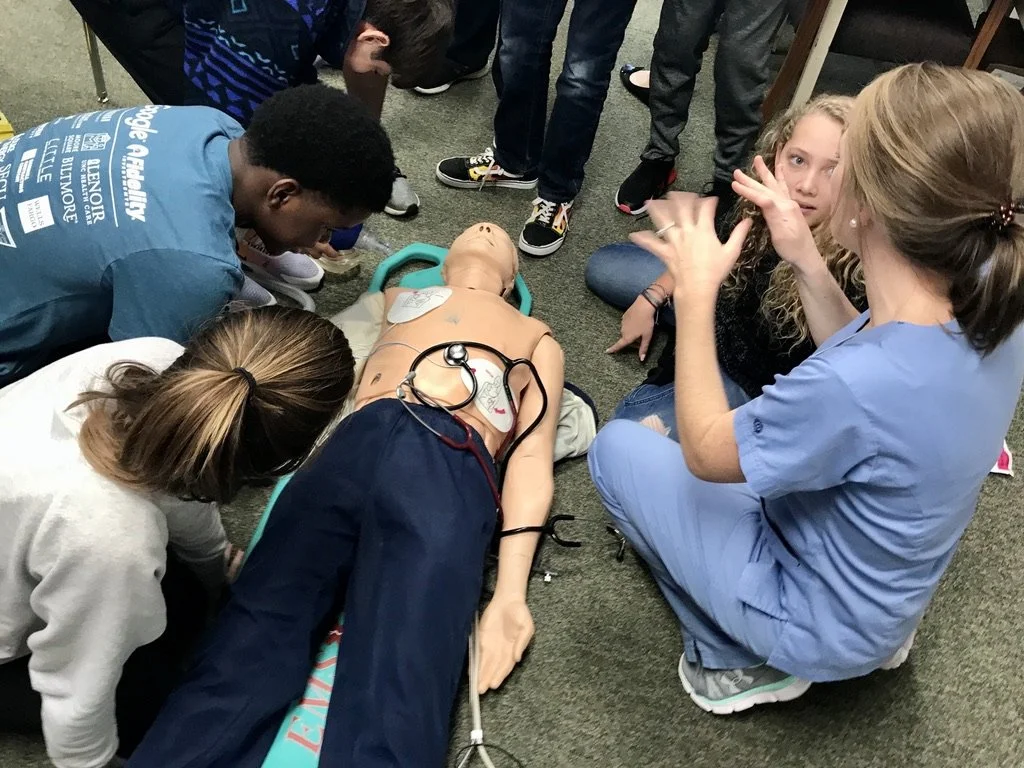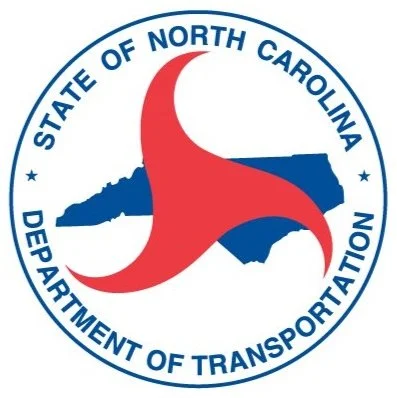What does work-based learning look like?
Career Awareness Career Exploration Career Experience
Learning About Work. Learning Through Work. Learning For Work.
How will work-based learning help me?
Students & Job Seekers
By participating in work-based learning, you’ll be able to explore career options, find out whether or not a specific path is right for you, gain the skills and experience to make yourself more attractive to employers and become better prepared for the jobs of tomorrow. No matter what direction you want to go, work-based learning is part of your path to get there.
CFNC - Helping You Plan, Apply, and Pay for College
Connect with Businesses and Employers through the Navigator
Enter the Workforce ahead of the Rest with NC Career Launch
Learn about Different Job Pathways on NC Careers
Learn and Earn through Youth Apprenticeships
Employers
Developing and supporting work-based learning opportunities allows North Carolina employers to increase and directly shape their talent pipeline. It not only increases community involvement, but also provides a unique platform for discovering and growing future hires—so they’re equipped with specific skills and understanding they need to improve your business.
Connect with Educators and Reach Students through the Navigator
Access toolkits to help develop a program:
Create an Apprenticeship through ApprenticeshipNC
Design a Virtual Internship
Best Practices for Hosting an Intern
Guide for Minors Involved in Work-based Learning Programs
K-12 Talent Pipeline Toolkit
Develop a work-based learning program in your county with this toolkit
Educators
Introducing students to work-based learning opportunities helps educators create deeper connections between what students are learning in school and how it can be used in the real world. This relevance is a powerful tool for engaging and motivating students. Exposure to work-based learning also gives students a more well-rounded education that improves their chances for future success.
Connect with Businesses to Find Opportunities
Apply for a Stipend to Attend the Professional Development Opportunity of Your Choosing through the Governor’s Educator Discovery Award
Develop an Apprenticeship with this Toolkit
Develop a work-based learning program at your school with this toolkit
The framework put to work.
Work-based learning is a key component in every educational pathway. See how existing programs have been created based on this new statewide framework.
Bringing together government, education, and industry partners, NCBCE’s Building Bright Futures is an early childhood education apprenticeship program designed to rebuild and grow NC’s childcare workforce. Targeted to high school students and recent graduates, the program offers resources and services to support students in paid, work-based learning opportunities as they progress toward a college degree in early childhood education.
NCBCE is leading North Carolina’s participation in the National Governors Association Work-based Learning Policy Academy as a Leader State. Through this multi-system initiative, NC Career Launch was developed to provide students with work-based learning, education, and credential attainment to prepare them for the workforce. NCBCE works with partners to expand these programs and launch innovative pilots that provide opportunities for students and a pipeline of future team members for employers. Pilots include various youth and registered apprenticeships in fields such as transportation, cybersecurity, early childhood, and more. NCBCE has also worked with members of the tech field to curate industry-developed curricula and make them readily available to NC students.
The LiNC-IT pilot program was created for young adults on the autism spectrum. It is the first state initiative to develop the pipeline for a neurodiverse workforce, connecting highly intelligent and loyal workers who bring a unique perspective with employers in the IT industry. See how this program framework brings workers and internships together based on the specific soft-skill requirements of the position for the most successful matches.
The Navigator is a free, first-of-its-kind, online tool to lead the way in connecting education to career. The platform brings together members of the business, education, and workforce development communities in a space where they can post, search for, and measure work-based learning opportunities. These opportunities are experiential learning activities ranging from guest speaking roles to apprenticeships, posted by businesses and used by educators and members of the workforce communities.
The Navigator platform was developed by the North Carolina Business Committee For Education (NCBCE), in partnership with Fidelity Investments and the Office Of The Governor.
Ready, Set, App! is a statewide initiative that challenges NC high school students to create a mobile app that addresses a problem in their school or community. Ready, Set, App! focuses on three primary pillars: mobile app development, professional and personal development, and growing interpersonal and soft skills. The competition is sponsored by Lenovo.
STEPs4GROWTH is a comprehensive clean energy workforce development project funded by a grant from the US Department of Commerce. It is led by NC A&T State University with support from NCBCE and other partners. STEPs4GROWTH works with employers to train students and adults to fill well-paying jobs in energy efficiency, renewable energy, clean vehicles, and grid & resiliency.
As one of the largest employers in North Carolina, the N.C. Department of Transportation is always looking for talented and motivated individuals to join the team. If you are interested in a career in transportation, NCDOT encourages you to consider the Transportation Apprenticeship Program, or TAP+.
NCDOT’s TAP+ is a great way to gain the skills and experience needed to succeed in careers in transportation engineering and construction. Apprentices will work alongside experienced professionals and learn industry-leading techniques and technologies. They will also have the opportunity to participate in a variety of projects and in areas as diverse as design, construction, repair, bridge work, erosion control, maintenance, aviation, maritime, rail and integrated mobility.
The NC Student Connect Tech Team is a comprehensive framework for North Carolina schools and districts to access resources for starting, implementing, and scaling a student technology support desk. NCBCE also worked with leaders of NC tech companies to develop a list of industry-developed credentials that students and teachers can access. Since its launch in 2020, ten pilot districts have developed programs to support Tech Team programs which give students valuable work-based learning and credential attainment.














